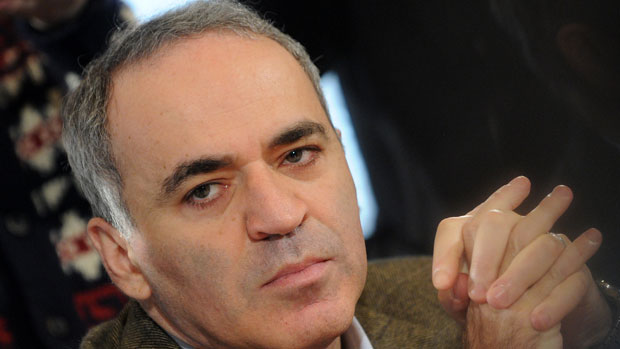New era of censorship as Russia bans news websites
Major independent news outlets in Russia have been blocked by the state communications agency

A free daily email with the biggest news stories of the day – and the best features from TheWeek.com
You are now subscribed
Your newsletter sign-up was successful
RUSSIAN internet service providers blocked several websites critical of the Kremlin on Thursday, as well as a blog run by anti-Putin activist and opposition leader Alexei Navalny.
The state communications monitoring agency Roskomnadzora banned news websites Grani.ru, Kasparov.ru and EJ.ru and ordered access to Alexei Navalny's blog Livejournal.com to be revoked.
"These sites contain incitement to illegal activity and participation in public events held in violation of the established order," a statement from Roskomnadzora said.
The Week
Escape your echo chamber. Get the facts behind the news, plus analysis from multiple perspectives.

Sign up for The Week's Free Newsletters
From our morning news briefing to a weekly Good News Newsletter, get the best of The Week delivered directly to your inbox.
From our morning news briefing to a weekly Good News Newsletter, get the best of The Week delivered directly to your inbox.
The websites have previously published scathing criticism of President Vladimir Putin's government, including articles explicitly condemning the Kremlin's actions in Ukraine, the Wall Street Journal reports.
Kasparov.ru is run by former chess world champion Gary Kasparov (above). The opposition figure has been arrested by state authorities several times, including in 2012 when he was beaten and taken into custody after appearing outside court in support of the punk band Pussy Riot.
Navalny's personal blog was also banned due to alleged violations of a two-month house arrest the activist is currently serving.
The latest bans are an extension of Russia's controversial 2012 blacklist bill that restricted access to pages that provide information on drugs, suicide and child pornography or that promote "extremist" propaganda.
A free daily email with the biggest news stories of the day – and the best features from TheWeek.com
Human rights groups said that the legislation served to increase censorship in the country, warning that the closures could lead to further bans.
"The government will start closing other sites - any democracy-oriented sites are at risk of being taken offline. It will be [an attack on] the freedom of speech on the internet," Yuri Vdovin, vice-president of Citizens' Watch, a human rights organisation based in Saint-Petersburg, told the BBC after the law came into effect.
In response to the latest round of blocks Kasparov tweeted: "These are huge news sites, not political groups... Grani, EJ, Navalny's blog, all blocked in Russia."
"Not only did Putin block access to opposition news sites in Russia, but the Russian government contacted our admin to turn off servers. They work fast," Kasparov tweeted.
The action against the independent news providers came a day after the proprietor of Lenta.ru, a major Russian news outlet, fired its editor over coverage of Ukraine.